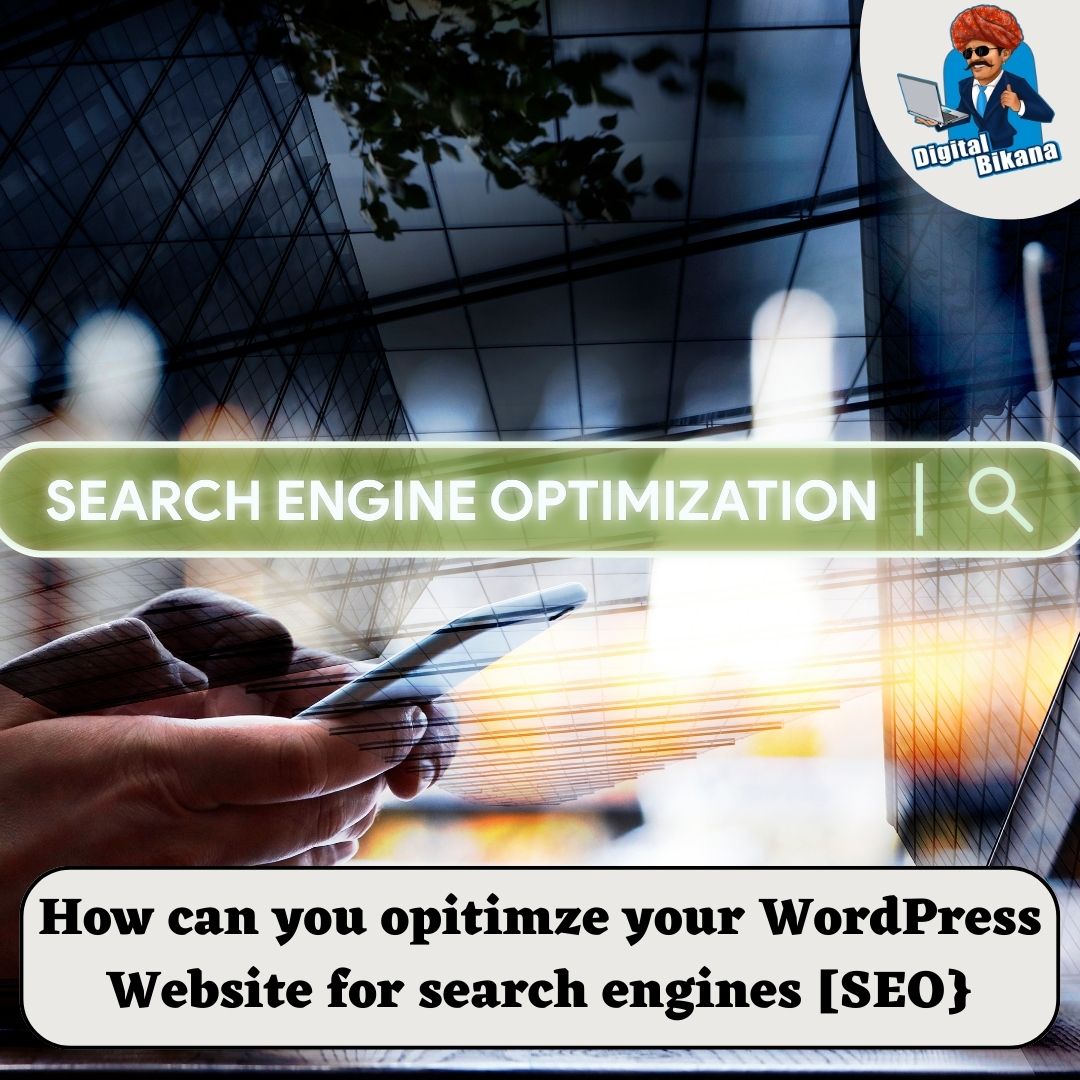How can you optimize your WordPress website for search engines (SEO)?
In this article we are going to talk about How can you optimize your WordPress website for search engines (SEO)? In today’s digital age, being visible online is vital for the success of any business or website. One of the most effective ways to drive organic traffic and increase your visibility in search engine results is through search engine optimization (SEO). When it comes to optimizing your website for search engines, WordPress offers a wide range of powerful tools and plugins that can help you improve your website’s SEO performance.
How can you Optimize your WordPress Website for search engines (SEO)?
In this article, we will explore some essential tips and techniques to optimize your WordPress website for search engines.
1. Choose a SEO-friendly WordPress theme
The foundation of your website’s SEO starts with selecting a well-coded and SEO-friendly WordPress theme. Choose themes that are light, load quickly, and have clean code. Ensure that the theme is mobile-responsive and optimized for all devices. A responsive design is essential for providing a good user experience and can positively impact your search rankings.
Read Also: What are the some common SEO Mistakes to avoid?
2. Install an SEO plugin
WordPress provides several plugins that can significantly enhance your website’s SEO capabilities. One of the most popular and powerful plugins is Yoast SEO. Yoast SEO allows you to optimize your website’s meta tags, create XML sitemaps, analyze your content for SEO, and much more. Install and configure an SEO plugin like Yoast SEO to simplify the optimization process and gain valuable insights.

3. Optimize your permalinks
Permalinks are the website addresses (URLs) of your pages and posts. By default, WordPress generates permalinks that are not search engine friendly. To optimize your permalinks, go to the settings in your WordPress dashboard and choose a structure that includes your post name. This will create clean and readable URLs that contain relevant keywords, making it easier for search engines to understand your content.
Read Also: What are Permalinks in WordPress and How can you customize them?
4. Conduct keyword research
Keyword research is a fundamental aspect of SEO. It involves identifying the search terms and phrases that users are using to find information related to your website or business. Use tools like Google Keyword Planner, SEMrush, or Ahrefs to find popular keywords that match your content. Include these keywords naturally in your content, titles, headings, and meta descriptions to improve your website’s visibility.
4. Optimize your content
Creating high-quality, engaging, and informative content is essential for SEO success. Ensure that your content is unique, well-structured, and provides value to your audience. Optimize your content by including your target keywords naturally throughout the text, headings, and meta tags. However, be careful not to overuse keywords (keyword stuffing) as it can hurt your rankings. Use relevant images, videos, and infographics to enhance the visual appeal of your content.
5. Improve your website’s loading speed
Website loading speed is important for both user experience and search engine rankings. Slow-loading websites not only discourage users but also negatively impact your SEO. Optimize your website’s loading speed by using a lightweight theme, compressing images, minimizing CSS and JavaScript files, and enabling caching. Plugins like WP Rocket or W3 Total Cache can help you optimize your website’s performance.
6. Create XML sitemaps
XML sitemaps are important for search engines to understand and index your website properly. A sitemap is a file that lists all the pages on your site, providing valuable information to search engines about your site’s structure and content. You can generate XML sitemaps easily using SEO plugins like Yoast SEO. Once generated, submit your sitemap to search engines like Google and Bing through their respective webmaster tools.
Read Also: How can you create a sitemap for a WordPress website?
7. Optimize for mobile devices
Optimizing your website for mobile devices is crucial due to the growing usage of smartphones and tablets. Search engines prioritize mobile-friendly websites in their rankings, and having a responsive design is an essential factor for SEO success. Choose a mobile-responsive theme, test your website’s mobile-friendliness using tools like Google’s Mobile-Friendly Test, and ensure that your content and images are optimized for mobile viewing.
8. Build high-quality backlinks
Backlinks are links from other websites that direct visitors to your site. They are an essential ranking factor for search engines, as they indicate the credibility and authority of your website. Focus on obtaining good-quality backlinks from trusted and relevant sources. Guest blogging, creating valuable content, participating in industry forums, and engaging with influencers are effective ways to earn quality backlinks.

9. Monitor and analyze your website’s performance
SEO is an ongoing process, and it’s crucial to monitor and analyze your website’s performance regularly. Utilize tools like Google Analytics and Google Search Console to track your website’s traffic, user behavior, search queries, and crawl errors. Analyzing this data will help you identify areas for improvement and make data-driven decisions to optimize your website further.
Conclusion
Optimizing your WordPress website for search engines is essential to increase your visibility, drive organic traffic, and improve your online presence. By implementing the strategies mentioned above, such as choosing a SEO-friendly theme, installing an SEO plugin, optimizing content, improving loading speed, and building quality backlinks, you can enhance your website’s SEO performance and attract more visitors. Remember, SEO is an ongoing process, so continuously monitor, analyze, and adapt your strategies to stay ahead in the search engine rankings. So, Now I hope you have understood about how can we optimize our WordPress website for search engines (SEO).
You can also checkout this website designing institute to learn digital marketing course by enrolling in our course Or Contact Digital Bikana on +91-8949483728

